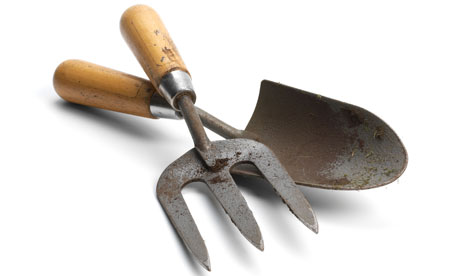
If you hear of someone catching legionnaires' disease, it is usually after a trip abroad, when an unclean air conditioning unit has spread droplets of legionella pneumophila bacteria in the air. But some countries, such as Australia, are familiar with another strain, legionella longbeachae, which is produced by compost when it decomposes, particularly in the heat. Last week, the Health Protection Agency (HPA) in Scotland warned gardeners to be careful when handling compost after a man who had been using compost died from the disease.
Legionnaires' disease causes non-specific symptoms such as headaches, a high fever, diarrhoea and a dry cough. There is also the chance of severe pneumonia, particularly in people who smoke and have respiratory problems, are older or have a weak immune system. So should you avoid using compost or are there precautions you can take to keep safe?
The solution
It is rare to catch legionnaires' disease from gardening. It's not clear how many people have been confirmed with the longbeachae strain, but the BBC says there have been six cases in Scotland in recent years.
Even so, you shouldn't be complacent when using compost. Some researchers think the risk may be underestimated. Half of all cases of legionnaires' disease in Australia are of the longbeachae type and a study in Switzerland found various legionella species in half of the potting soils they sampled. The authors said that cases linked to gardening or using compost had also been been identified in Japan, the United States and the Netherlands.
It takes between two and 19 days to develop symptoms. The disease can be detected by a urine test (often pneumonia is seen on a chest x-ray), and treated by antibiotics, but some people do die from the condition.
When gardening try to avoid opening the compost bag in close proximity to your head, so you don't inhale any bacteria. Damping down the compost before potting reduces the dust. You should keep compost outside of greenhouses, as heat makes compost decompose and release bacteria more readily. Although the bacteria are thought to be transmitted mainly through droplets of moisture, the HPA advises people to wash their hands after using compost, especially before eating, drinking or smoking. Wearing gloves when you garden may offer some protection.
While gardening is hardly a hazardous activity, the Royal Horticultural Society says that taking precautions against legionnaires' disease will also protect you from other airborne micro-organisms found in compost such as aspergillus fumigatus, a fungus that can cause breathing difficulties, and toxoplasmosis from cat and fox droppings in soil. If you have asthma or respiratory problems you should be especially careful when potting.

